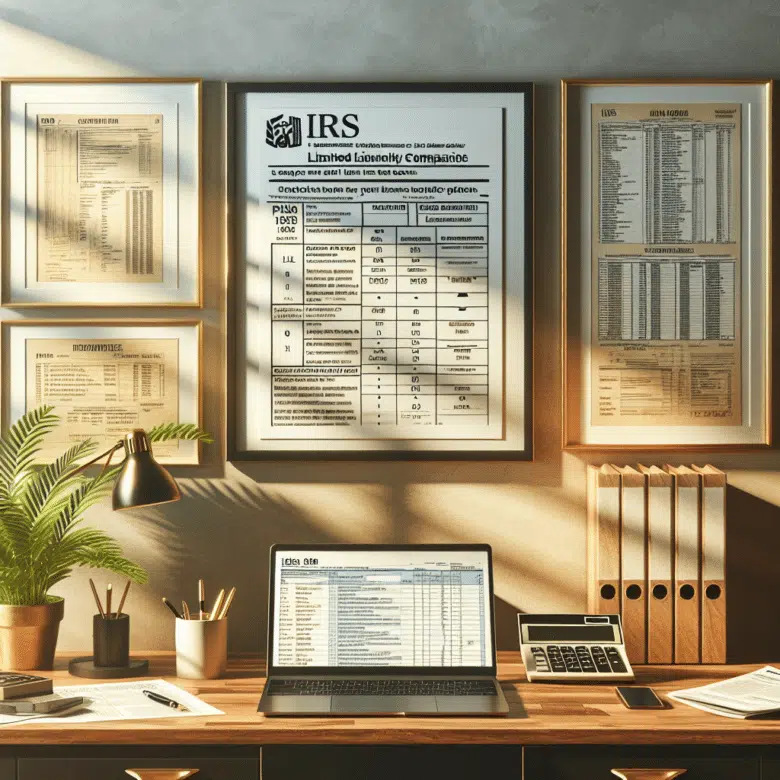For many business owners, understanding the intricacies of their federal tax return LLC can be a daunting task. Limited Liability Companies (LLCs) have unique tax obligations that differ from other business structures, making it essential to grasp the fundamentals of filing these returns. An LLC offers flexibility in taxation, allowing owners to choose between being taxed as a sole proprietorship, partnership, or corporation, depending on their needs and structure.
When it comes to filing, LLCs need to be aware of several key forms and deadlines. The choice of tax classification will determine which forms are necessary. For instance, single-member LLCs typically use Schedule C, while multi-member LLCs may need to file Form 1065. Additionally, understanding the various deductions and credits available can significantly impact your overall tax liability.
To ensure compliance and maximize your tax benefits, it is crucial to stay informed and organized throughout the tax year. With the right approach and expert guidance, filing can be a straightforward process.
Akron Income Tax Co is committed to providing income tax preparation services at reasonable fees.
Understanding LLC Tax Classification Options
One of the first steps in filing a federal tax return LLC is understanding the various tax classification options available to LLCs. The classification you choose will significantly affect how your business income is taxed and the forms you will need to file. LLCs can be classified in three primary ways: as a sole proprietorship, a partnership, or a corporation.
Sole Proprietorship: If your LLC has only one owner, it is typically treated as a sole proprietorship for tax purposes. In this case, the business’s income and expenses are reported on Schedule C of your personal tax return (Form 1040). The owner will pay self-employment taxes on the profits as well.
Partnership: For LLCs with two or more members, the default classification is a partnership. This requires filing Form 1065, which reports the business income, deductions, and credits. Each member will then receive a Schedule K-1, detailing their share of the profits or losses to report on their personal tax returns.
Corporation: LLCs can also elect to be taxed as a corporation by filing Form 8832. This option can be beneficial for certain businesses, as it allows for potential tax advantages, such as lower corporate tax rates and the ability to retain earnings within the company. Additionally, an LLC can choose to be taxed as an S Corporation, which can help avoid double taxation on distributions.
Choosing the right tax classification is crucial for optimizing tax obligations and ensuring compliance with IRS regulations. It’s advisable to consult with a tax professional to select the best option for your specific business needs.
Essential Forms for Filing Federal Tax Returns
When filing a federal tax return LLC, understanding the essential forms is critical to ensure accurate reporting and compliance with IRS requirements. The forms required can vary based on the tax classification you choose for your LLC.
If your LLC is classified as a sole proprietorship, the primary form you will need is Schedule C (Profit or Loss from Business), which is filed alongside your personal tax return (Form 1040). This form allows you to report all income and expenses related to your business, helping to determine your net profit or loss.
For LLCs treated as partnerships, Form 1065 (U.S. Return of Partnership Income) is necessary. This form provides an overview of the partnership’s financial activities, and it must be filed by March 15th of the following year. Additionally, each partner will receive a Schedule K-1, which details their share of the profits, losses, and other tax attributes.
If you’ve elected to have your LLC taxed as a corporation, you’ll need to complete Form 1120 for a C Corporation or Form 1120S for an S Corporation. These forms require comprehensive details about the corporation’s income, deductions, and credits, and they have different deadlines and tax implications.
All forms must be accurately filled out and submitted by the respective deadlines to avoid penalties. It’s highly recommended to keep thorough records of all business transactions throughout the year to simplify the filing process and maximize any potential deductions.
Common Deductions and Credits for LLCs
Maximizing your tax savings is essential when filing a federal tax return LLC. Fortunately, LLCs are eligible for various deductions and credits that can significantly reduce their taxable income. Understanding these common deductions and credits is crucial for effective tax planning.
Some of the most common deductions available to LLCs include:
- Business Expenses: Ordinary and necessary expenses incurred in the course of running your business can be deducted. This includes costs such as rent, utilities, office supplies, and salaries.
- Vehicle Expenses: If you use your vehicle for business purposes, you can either deduct actual expenses or use the standard mileage rate, which is set annually by the IRS.
- Home Office Deduction: If you operate your LLC from home, you may qualify for a home office deduction, which allows you to deduct a portion of your home expenses proportional to the space used for business.
- Depreciation: This allows you to recover the cost of certain assets over time. If you purchase equipment or property for your LLC, you can write off a portion of the cost each year.
- Health Insurance Premiums: For single-member LLCs, health insurance premiums can be deducted from the business income, which can be a significant tax saver.
In addition to deductions, LLCs may also qualify for various tax credits. These credits directly reduce the amount of tax owed and include:
- Small Business Health Care Tax Credit: If you provide health insurance to your employees, you may be eligible for this credit.
- Work Opportunity Tax Credit: This credit encourages hiring individuals from certain target groups, offering a financial incentive for businesses.
Careful documentation of all expenses and thorough understanding of available deductions and credits can help streamline the tax filing process and enhance your LLC’s financial health.
Filing Deadlines and Important Dates
Understanding the filing deadlines and important dates for your LLC is crucial to avoid penalties and ensure compliance with tax regulations. Each year, LLCs must adhere to specific timelines for filing their federal tax return LLC and other related documents.
Here are the key deadlines to keep in mind:
- March 15: For multi-member LLCs, the due date for filing Form 1065, the partnership tax return, is typically March 15. This deadline is crucial for reporting income, deductions, and other financial information to the IRS.
- April 15: Single-member LLCs, which are treated as sole proprietorships, must file their federal tax returns by April 15. This involves reporting income and expenses on Schedule C, which is submitted with the individual’s Form 1040.
- September 15: If you filed for an extension, multi-member LLCs have until September 15 to submit their Form 1065. This extension allows an additional six months for filing.
- October 15: Single-member LLCs that have requested an extension must file their returns by October 15. This ensures that all documents are submitted in compliance with IRS regulations.
In addition to these federal deadlines, it’s essential to be aware of state-specific filing requirements, as some states may have different due dates or forms to complete. Keeping track of these dates can prevent late fees and penalties, helping your LLC maintain a positive financial standing.
Tips for Smooth Federal Tax Return Preparation
Preparing your federal tax return for LLC can be a daunting task, but with the right approach and organization, the process can be smooth and stress-free. Here are some valuable tips to help you navigate through your tax preparation:
- Stay Organized: Keep all relevant documents in one place. This includes income statements, receipts, and any prior tax returns. Being organized will save you time and reduce the risk of missing important information.
- Utilize Accounting Software: Consider using accounting software tailored for small businesses and LLCs. These tools can help you track expenses, generate financial statements, and even prepare your tax return.
- Know Your Deductions: Familiarize yourself with available deductions specific to LLCs, such as business expenses, home office deductions, and vehicle costs. Maximizing your deductions can significantly reduce your taxable income.
- Consult a Tax Professional: If you’re unsure about the intricacies of tax laws or need help with complex situations, consulting a tax professional can provide peace of mind and ensure compliance.
- Plan Ahead: Don’t wait until the last minute to gather your documents or file your return. Planning ahead allows for a more thorough review and can help you avoid potential errors.
By following these tips, you can enhance your tax preparation experience and ensure that your LLC is on the right track. If you need assistance, Akron Income Tax Co is committed to providing income tax preparation services at reasonable fees. Visit us at apc1040.com to learn more about how we can help you with your federal tax return.








